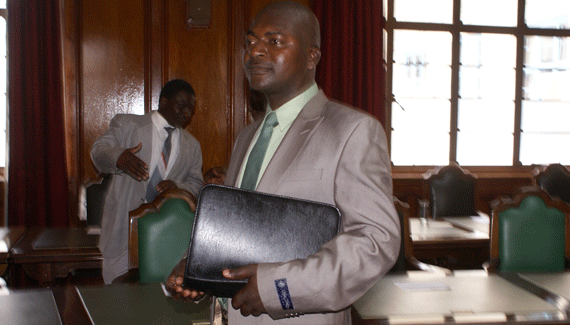
IN their wisdom, the City Fathers in Bulawayo, Gwanda and Victoria Falls have found it prudent not to raise tariffs next year owing to the prevailing harsh economic conditions which have seen residents in these local authorities battling to pay their monthly rates.
Fine and good, the majority of Zimbabweans wallow in poverty due to the harsh economic climate.
They certainly need a respite.
But it has to be noted this moratorium in Bulawayo, Gwanda and Victoria Falls comes in the backcloth of a directive from the Zanu PF administration to cancel debts for residents backdated to 2009 whose effect is threatening to collapse the municipalities.
It is an open secret nearly all local authorities in the country face severe problems owing to this populist directive which has seen them fail to pay workers.
For instance, Bulawayo — which by the stroke of a pen annulled debts amounting to a whopping $49,9 million — is sitting on a $78 million debt. This has been worsened by residents’ failure to service their monthly bills which ballooned to $68 million as of September this year.
It is the same with other local authorities.
While the freeze on tariffs has been received with pomp and ceremony by residents in Bulawayo, Gwanda and Victoria, this populist decision could come back to haunt the local authorities.
- Chamisa under fire over US$120K donation
- Mavhunga puts DeMbare into Chibuku quarterfinals
- Pension funds bet on Cabora Bassa oilfields
- Councils defy govt fire tender directive
Keep Reading
It could have the effect of compromising service delivery. The tariffs are the lifeblood of all local authorities.
Maintaining some of these tariffs at last year’s rates in 2014 could have the adverse effect of compounding their financial woes, coming at a time when there are outcries over poor service delivery by most local authorities.
Councils need cash and the only way to get it is through tariffs. Already, most local authorities are battling lack of funding in the form of loans and grants from the government, among other challenges.
There are high hopes for government support as provided by the new Constitution, which allows Treasury to allocate 5% of the national budget to local authorities.
The government is technically broke. So councils need to find means of raising cash to finance their operations and the only sure way is through tariffs, albeit in reasonable charges.
Citizens want service delivery — reliable provision of clean water, refuse collection, resurfacing of roads, sewerage reticulation and street-lighting and all these will not come like manna from heaven.
Local authorities should have a rethink on the issue otherwise there might be preparing for their eventual collapse.










